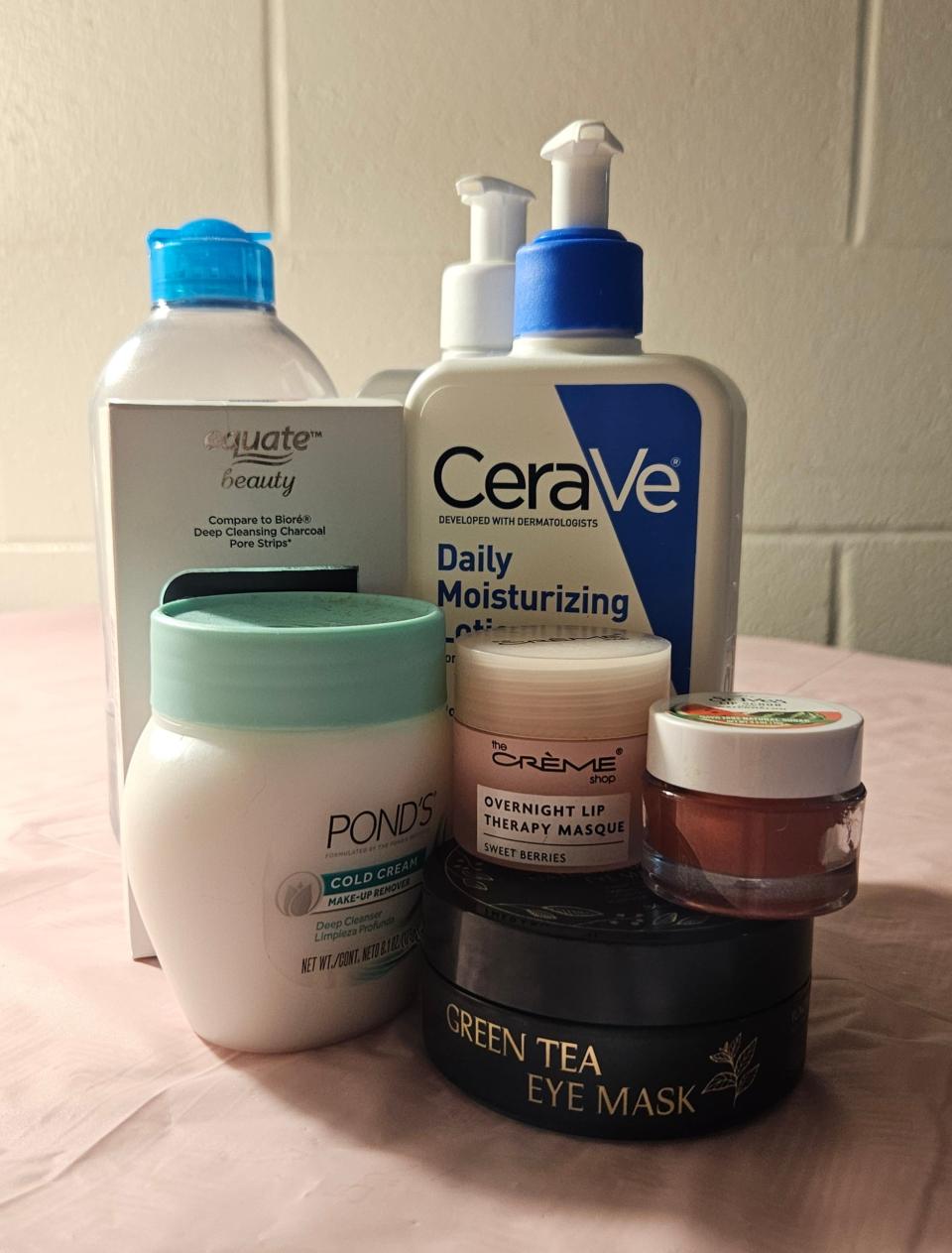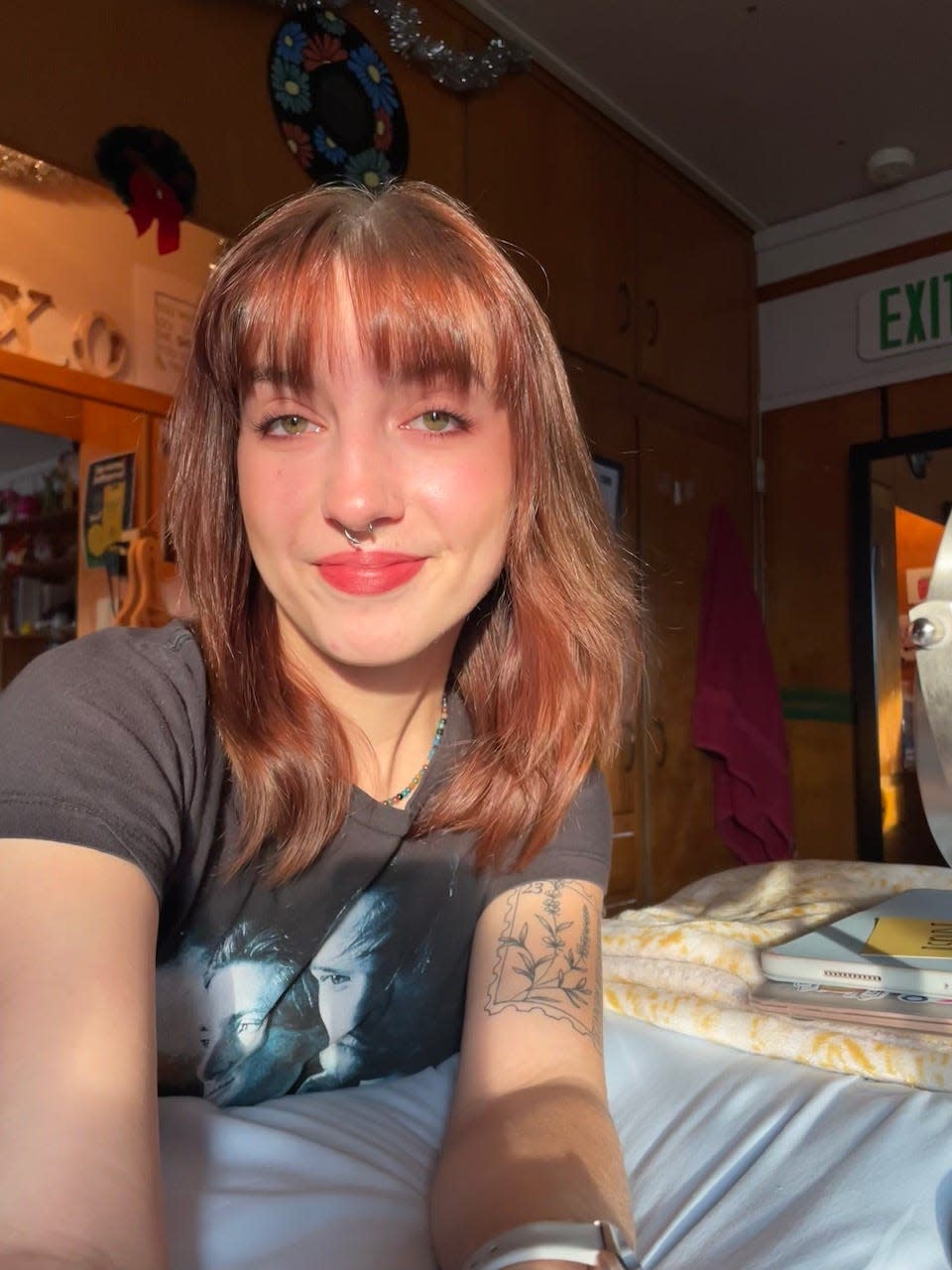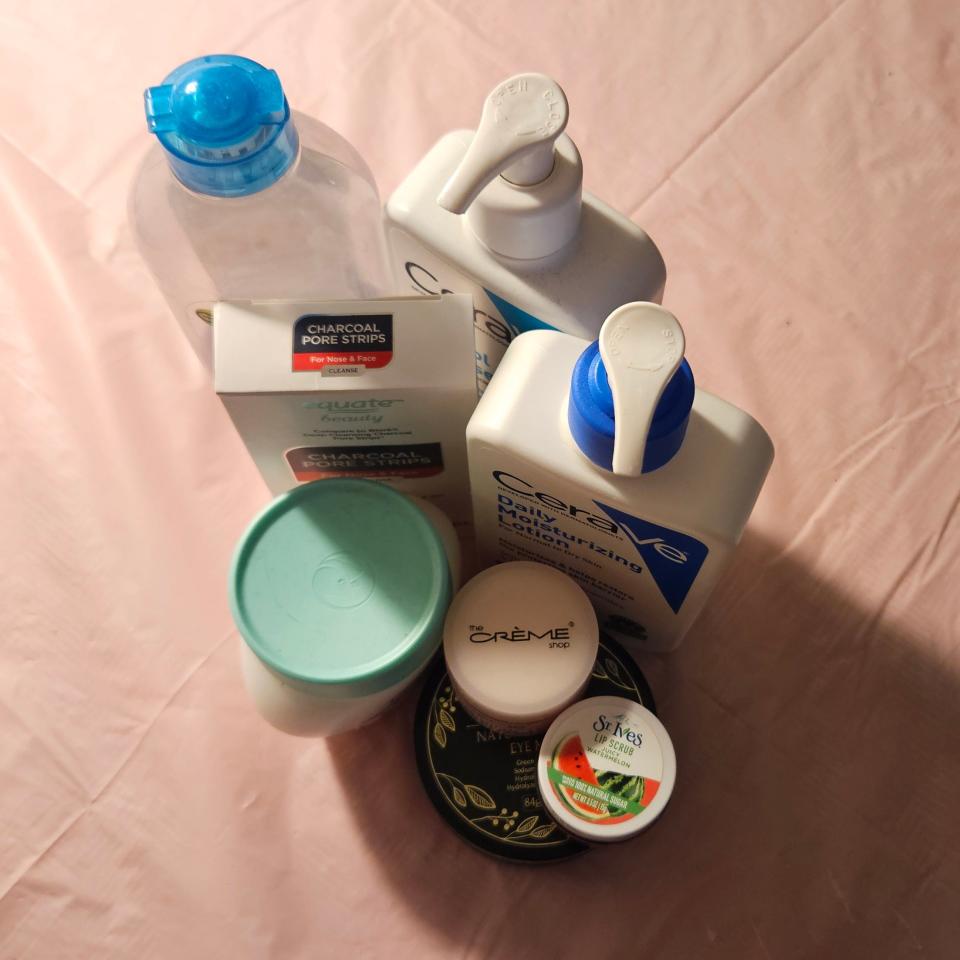Skincare is on the rise with younger generations — what can be the mental health repercussions?
Editor's Note: The following is part of a class project originally initiated in the classroom of Ball State University professor Adam Kuban in fall 2021. Kuban continued the project this spring semester, challenging his students to find sustainability efforts in the Muncie area and pitch their ideas to Ron Wilkins, interim editor of The Star Press, Journal & Courier and Palladium-Item. This spring, stories related to health care will be featured.
The skincare industry is projected to hit $24.35 billion in revenue in 2024 across the United States, according to Statistica. The U.S. leads worldwide when it comes to revenue generation in this market, and in 2024, individuals are expected to contribute $71.24 per person.
Skincare is the most-shopped-for beauty category across all age groups in 2021, according to Klarna, a global payments and shopping service.
Klarna surveyed 15,000 shoppers and found Generation Z and millennials, 41% and 40% respectively, bought skincare products. By contrast, 31% of Generation Xers and baby boomers bought skincare.
The same survey found 33% of respondents incorporated a skincare regimen into their health and wellness routine, making it the No. 1 activity since the start of the COVID-19 pandemic.

This increase of interest has been noticed by licensed mental health counselor Kimberly Salsman, who works in Putnam County Hospital’s Behavioral Health Department.
She said she’s noticed a strong connection between appearance and skincare to mental health.
With her patients, she focuses on encouraging them to take care of themselves and incorporate skincare into their routine.
“Taking care of ‘you’ really impacts even their interpersonal relationships because they're more comfortable,” Salsman explained. “They're more secure, and they're willing to actually approach people that they would normally have not done.”
According to “Physiological benefits associated with facial skincare: Well-being from emotional perception to neuromodulation” by Sara Bouhout, Arnaud Aubert, Francis Vial and Benjamin Choquenet, researchers conducted a study with two groups: one with 32 participants and the other with 31. This study, published in March 2023 in the “International Journal of Cosmetic Science,” found there’s “an involvement of positive emotions” and a relaxation effect connected to facial skincare.
Skin care and self esteem
However, in the last few years, Salsman said she has noticed appearance become more of a focus, and she sees negatives when it comes to skincare, especially when it comes to anti-aging products.
The main issues she comes across in relation to skincare and appearance stem from self-esteem issues.
Specifically, Salsman said she has noticed younger generations becoming more focused on skincare and appearance at much younger ages, having patients as young as 12. She said filters, photo editing and people post-puberty impact preteens’ self-image and what they think they’re supposed to look like.
When people, especially younger generations, take “proper care” of their skin, like washing their face every night and taking off their makeup, then they’ll feel a bit better, more valuable and feel more self-control because they’re doing something for themselves, Salsman said.

Zoe Kolosci, 21, a DePauw University art history major from Portage, Indiana, relates to what Salsman said about having a positive connection with her skincare routine.
Having her skincare routine has created a consistent routine, from which she benefits.
Kolosci said she started thinking of her skincare in middle school, but she didn’t “take it very seriously” until high school, and by the end of high school, she had her consistent routine.
Pressures from social media
Both Kolosci and Salsman have noticed an increase in younger generations using skincare products, especially expensive and anti-aging products.
Both believe social media has an impact on why younger generations are using such products along with socio-cultural pressures and capitalism.
“They (younger consumers) believe they have to have expensive items,” Salsman said. “They have to go to Sephora, or they're not getting good stuff. They believe that whatever they see on TikTok, those people look just like that, so they must have a better skincare workout than they do.”
This combination of social media, capitalism and pressures go beyond youth — even though they’re bombarded with it — but it extends to older women as well, such as divorcées, Salsman said.
“The makeup is really tied in, the skincare is really tied into so many other things that are affecting young people, and even older people,” she said. “People are more self-conscious than they used to be. I think being unable to see all these things and other people makes them think they're not good enough and what they're using is not good enough.”
Salsman cited the dangers of artificial intelligence and filters and how advertisers use those and consumers’ self-consciousness in their marketing.
Tina Pressey, 53, from Terre Haute, is very active when it comes to skincare. She has tried and done different things from cleansers to Botox and filler.
“You name it, I use it,” she said.

She started her skincare journey much older than Kolosci’s middle school years, starting in her late 30s when she noticed aging.
Pressey said she’s “earned the aging” and that her goal is to look younger but not hide her age.
Skincare revolution affects children
Like Salsman and Kolosci, Pressey has noticed the rising youth interest in skincare through her 11-year-old granddaughter.
She said her granddaughter spent $530 to $600 — her birthday money — on products in one trip.
“Her intent is to literally not age at all,” she said. “Because that's always like, ‘I'm getting a wrinkle,’ and I'm like, ‘You're 11 years old.’ So her intent is more to not ever age and mine is to just slow it down.”
She feels the anti-aging and expensive products are pushing her granddaughter to grow up faster, as well as targeting her self-image.
Salsman said she feels children, in general, are being pushed to age faster with skincare being one symptom of it. Because parents have to work more, children must, for example, cook for themselves and to get themselves on the bus as young as 10-years-old.
“So in a way, if you think about it, if a child's been getting off the bus by themselves since they were 12, and they're now 14, they're pretty much a little adult,” she said.
She has noticed this increase in responsibility has led to them having to learn self-regulation and other skills, or them having to deal with anxiety.
Salsman said ways to help are to be realistic of finances, be simple, cut back, stop and think, talk to trusted individuals and to try other selfcare activities.
This article originally appeared on Lafayette Journal & Courier: Skincare appeals to younger generations, but might be unhealthy

